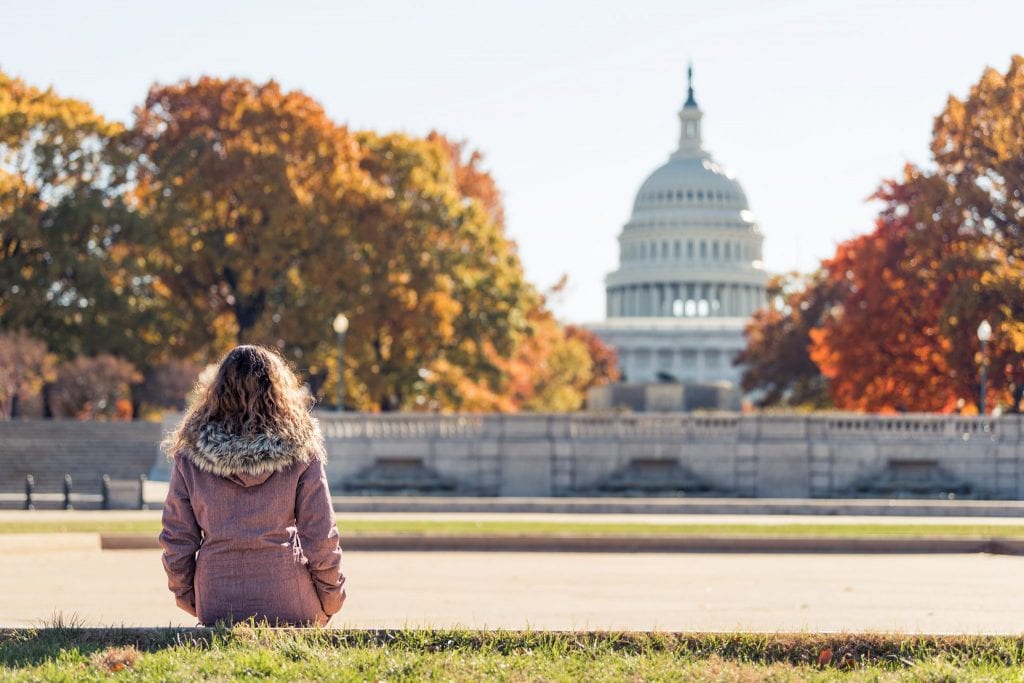Skift Take
Having an advocate at the top level of government is a big win for the U.S. travel industry, as is the more metrics-based approach this new assistant secretary at the Commerce Department will take to help increase visitation and streamline visa issues, amongst others.
It took 28 years, and when it came this Friday evening before Christmas holidays, it slipped under the cover of a historic “bomb cyclone” weather catastrophe playing out over the continental United States.
This is a seminal moment for the U.S. travel industry, as a bill that has been passed by both chambers of Congress is about be signed into law by President Biden, and for the first time in U.S. history it creates a top government level position — a new Assistant Secretary of Travel and Tourism at the U.S. Department of Commerce — for the travel and tourism industry, and finally a seat the policy table the the industry has been asking for decades.
This should have happened in the Bill Clinton administration in the mid 1990s, as we wrote in 2013 explaining the moment right before Atlanta Olympics in 1996 when there was a lot of momentum to open up tourism-related policies in the country, but were shelved for political reasons.
Twenty eight years later, it is here. And the country’s top travel policy organization U.S. Travel Association explains the significance of this move in a statement this evening, this coming from Geoff Freeman, the CEO of U.S. Travel Association: “The idea to create a presidentially appointed, U.S. Senate-confirmed position to lead federal travel policy has been around for decades. Thanks to a bipartisan and bicameral group of congressional leaders, the United States will now join all G20 countries with a senior federal official focused on travel.
“The Assistant Secretary will play an important role as we partner with government to lower visitor visa wait times, modernize security screening and leverage new technologies to make travel more seamless and secure.”
Here are the main points in the Omnibus Travel and Tourism Act that is about to become law as part of the larger Omnibus 2023 overall government spending bill:
- Establish an Assistant Secretary of Commerce for Travel andTourism in the Department of Commerce. The Assistant Secretary of Commerce for Travel and Tourism would support and enhance domestic travel and tourism by, among other responsibilities, creating goals for international visitation and travel and tourism exports.
- Establish the United States Travel and Tourism Advisory Board with membership comprised of representatives from companies and organizations in the travel and tourism industry who would be appointed for two-year terms and would advise the Secretary of Commerce on travel and tourism industry-related matters.
- Direct the Secretary of Commerce, in consultation with the U.S. Travel and Tourism Advisory Board, the Tourism Policy Council, and the Secretary of Homeland Security, to submit to Congress a 10-year travel and tourism strategy, not less frequently than once every 10 years.
- Direct the Secretary of Commerce to study the effects of the pandemic on the travel and tourism industry and submit a report on the final study to Congress.
- Establish the Joint Task Force on Air Travel During and After the COVID–19 Public Health Emergency, which would develop recommended requirements, plans, and guidelines to address issues relating to air travel and airport operations during and after the COVID–19 public health emergency and report its recommendations to Congress.
- Direct the Secretary of Transportation to establish a Joint Federal Advisory Committee to develop policy recommendations for the Joint Task Force on Air Travel During and After the Covid–19 Public Health Emergency to consider in developing its recommendations.
- Direct the Administrator of the Transportation Security Administration to conduct a study of the feasibility of using canines to detect the virus that causes COVID–19; and if it is feasible, whether and how airports can use canines to screen passengers, aircraft crew members, and other individuals who pass through airports.
- Authorize the Administrator of the Transportation Security Administration, in coordination with the Commissioner of U.S. Customs and Border Protection, to conduct a 6-year pilot program, at up to six foreign last point of departure (LPD) airports, where passengers departing those airports could continue on additional flights or flight segments originating in the United States without additional security rescreening if their initial screening at the LPD airport was conducted in accordance with an aviation screening agreement and if other security requirements are met.
The full travel and tourism bill, about to come into law, is embedded below:
The Daily Newsletter
Our daily coverage of the global travel industry. Written by editors and analysts from across Skift’s brands.
Have a confidential tip for Skift? Get in touch
Tags: policy, US Travel Association, usa
